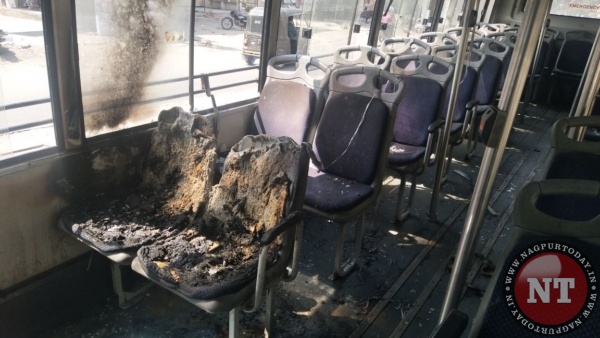The outcome of the investigation into the tragic bus fire last year, which claimed the lives of 20 students and three teachers, is disgraceful — but hardly surprising.
The probe’s conclusion, released by the Office of the National Anti-Corruption Commission (NACC) on Tuesday, reveals the shocking, systemic corruption in the vehicle safety inspection carried out by the Department of Land Transport (DLT).
The probe accuses six individuals — officials at the DLT Sing Buri branch, owners of the bus belonging to Sing Buri-based Chinnaboot Tour, and engineers at a third-party safety audit company.
They are accused of colluding to fabricate evidence that they obtained permits to allow a substandard CNG-bus on the road.
That particular bus had 11 tanks containing compressed natural gas (CNG). Yet, only six of the 11 CNG tanks installed on the bus were registered by the DLT, while the others were not.
The NACC probe focused on whether the DLT let this vehicle on the road. The probe found that the whole CNG system on this bus had never been inspected properly.
The result was the heartbreaking tragedy. The substandard bus caught fire on Oct 1 last year on Vibhavadi Rangsit Road. The bus was taking students from a school in Uthai Thani on a field trip.
The graftbusters accused a DLT official at the Sing Buri office of dereliction of duty and malfeasance. This official did not even look at the bus or CNG gas system — the probe states that this official simply issued a permit that approved the six CNG gas tanks and related system.
The probe also found that an engineer at a third-party company issued the safety guarantee without checking the bus’s CNG gas system at all. It is shocking that the bus’s GPS tracking system showed the owner never sent the bus to a third-party company.
That begs the question as to whether the whole DLT inspection system is reliable enough to ensure safety.
With systemic corruption, it would not be a surprise at all if all substandard public buses and vans got official permits to ply the roads.
Last year, right after the tragic accident, the DLT reportedly ordered all 13,426 chartered buses using CNG tanks to be inspected within 60 days. Yet that inspection was done in a frantic manner. With public attention subsiding, the issue of safety inspections on public vehicles has been forgotten.
The Transport Ministry briefly imposed a temporary ban on the use of buses using CNG tanks to take students on trips pending proper safety measures from the DLT. These measures were not enough.
Responsible governments and policymakers must make sure every vehicle inspection conducted by the DLT and third-party auditing companies are checked to ensure transparency and law compliance.
The latest probe shows the owner of the problematic bus was not averse to using false serial numbers for gas tanks to apply for the permits. In reality, it is known that owners of sub-standard public and commercial buses can evade the law by giving tea money to third-party auditors and DLT officials.
With that said, the transport ministry also needs to use more safeguards, such as the use of digital data to track the serial numbers of vehicle components, to prevent fraud. Without sincere efforts to improve transparency, sub-standard buses will continue to be a danger on our roads.
Provided by SyndiGate Media Inc. (
Syndigate.info
).







